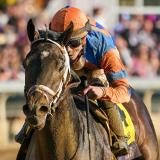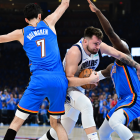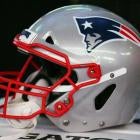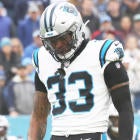More draft: Mock drafts | Draft order | Prospect rankings
"Our AAU system is so jacked up that there are no more pure point guards," an NBA coach told me last week. "It is very difficult to teach a kid to run a team, either he can or he can not.”
I agree. But luckily for those seeking help at the position, there are some true point guards available in this draft.
1. Shabazz Napier, UConn
What is most impressive about 'Bazz' is that he wasn't always a point, but seems to have learned a great deal under Kevin Ollie. Bazz is small, and though he's unlikely to become an NBA All-Star, he has the ability to get his own shot, the inner fortitude to not always take that shot, and the nuts to command respect from older players. One NBA GM saw his pick- and-roll skill two years ago and said “I'd take him today in the first round.” That same GM will have a shot and needs a true point, so we will see. Napier played without a 'roll' man in college so I think he will be better at creating shots with bigs who can score or at least dunk. He is tough, guards his position and is tireless. If I have a team that needs a true point, he is my choice.
2. Kyle Anderson, UCLA
Is Anderson the next Magic Johnson or Jalen Rose, or the next Boris Diaw? Sure he is slow of foot, looks bad in 3-on-3 drills and his shooting leaves a lot to be desired, but he makes plays, is super smart and if he works on his body over the next couple of years, Anderson will be as hard a cover in the NBA as he was in college. I believe Anderson is a point guard, point forward, and shot creator.
3. Tyler Ennis, Syracuse
Ennis is a true point. He plays at times at far too slow a pace for my tastes, but I think that can be taught some. Keep in mind in the NBA you get eight seconds to get the ball past half court and 24 to get a shot, which means the ball has to be in the scoring zone in 4-6 seconds every possession. Otherwise, there is no ability to turn the offense over. Did I mention that most backup point guards press for 94 feet? Ennis must play faster while maintaining his own pace and not being hurried. I have no idea if he can defend. I do not think he is particularly athletic and his shooting is so-so, but he is great at his floater game, has really good feel on pick-and-roll action (Syracuse’s entire offense) and he is never rattled. He may struggle with being a backup initially, as he didn't sit in college and is a high possession guy.
4. Vasilije Milcic, Serbia
He has “Spurs” written all over him. Milicic is big and can really pass and play. I think his defense and shooting may be a couple of years away, but he is big at 6-6 and very talented with the ball. He isn’t needlessly fancy like Ricky Rubio, and he seems to be a better stand-still shooter as well (that isn't saying much). Milicic has size and vision not just because of his size but because of his feel.
5. Elfrid Payton, Louisiana
Payton will likely go higher than the other two point guards ranked ahead of him on this list and he might -- just might -- have a better career, but that is not the point of where I am ranking him. Payton is a freak athlete in transition, he scored and assisted at will at a lower level in college and has the ability, which is very rare, to break you down even when you give him space and dare him to shoot. But while Payton is destroying guys in his workouts, the ability to be a point guard is not something a workout shows. The game is played with 10 guys, and even if he is Rajon Rondo II, keep in mind Rondo’s jumper was helped greatly by playing with three Hall of Famers. Doc Rivers had Rondo cut to the weak side after entering the ball and he didn't clog the lane because Kevin Garnett was playing out wide or high. The point is that Rondo is a very good non-shooting point guard, but his first four years in the NBA he had the perfect team, coach, and expectations -- that is going to be a lot to ask of Peyton’s situation.



















